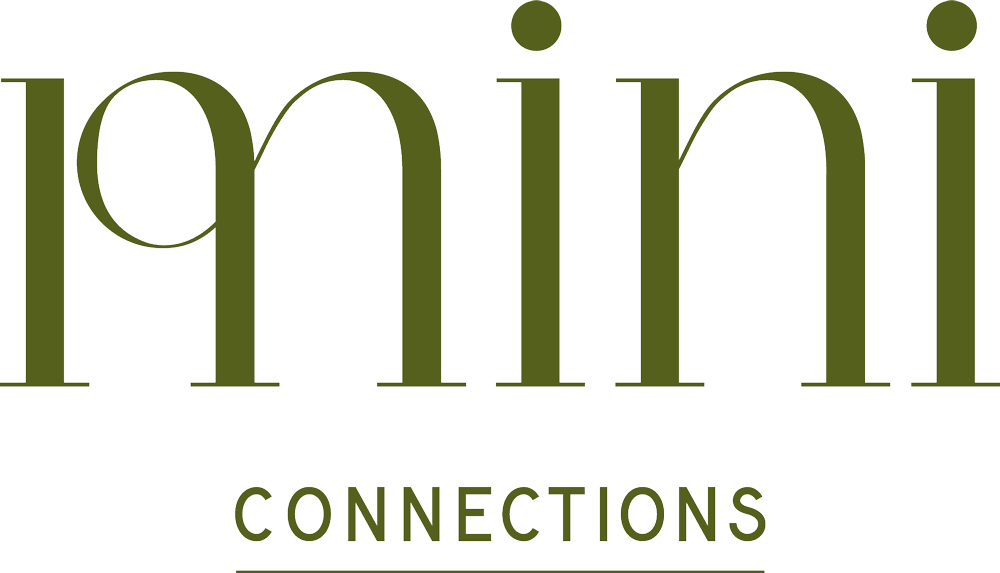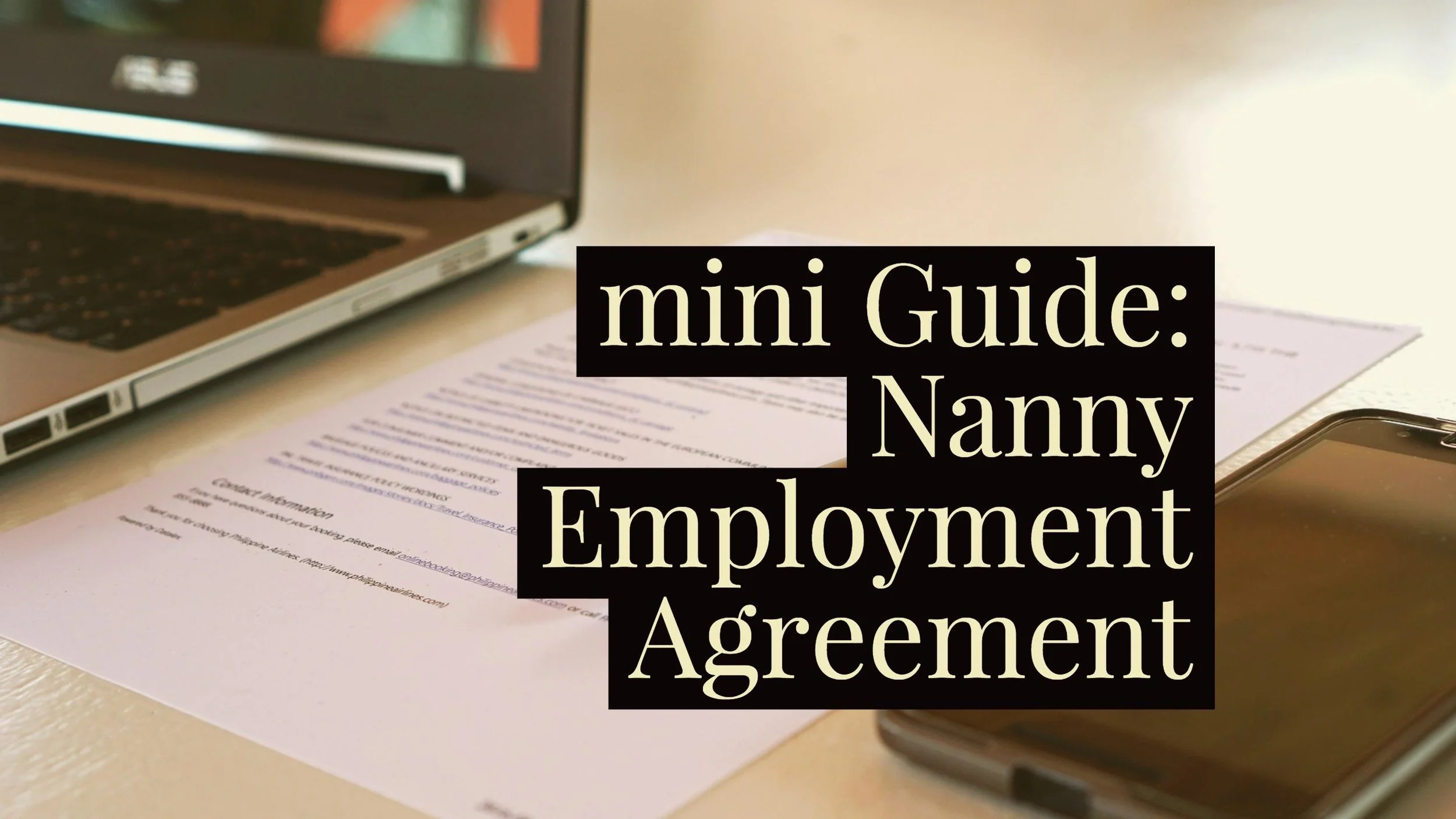mini Guide: Nanny Employment Agreement
/We believe hiring a nanny should have a similar process, (if not more important) to hiring any other employee for your business. We recommend you take a professional approach for your nanny search.
Upon finding the perfect nanny for your family, as with any hiring situation, an employment agreement should be established. This is a formal letter that will be signed by both parties in agreement to the clear expectations for role from the employer and the employee.
Let us help you iron out the key points that should be included in an nanny employment agreement.
How much do we pay our nanny?
In Australia on average, nannies earn $25/ hour + superannuation. This rate, of course, can fluctuate depending on how much experience your nanny has, their qualifications, and how many children they will be caring for. The casual rate currently is set at $22.86/ hour and the permanent rate currently stands at
$18.29 /hour. Nannies are award free and don't incur any penalities, although they are covered by the National Employment Standard.
One of the benefits of hiring a nanny over a babysitter or daycare is that nannies make their schedules more available to your family and are more willing to accommodate for extra hours. Sometimes life can get extra busy for your family. If you require your nanny to work outside of the set schedule or longer hours, include an agreed upon overtime rate or appropriate renumeration.
Car allowance
Will your nanny need to pick your kids up from school? Or drive your kids to their extra-curricular activities? Consider how much petrol your nanny will be using for the role and how you will reimburse for fuel / kilometers. The current kilometer rate stands at 0.66 cents. If it makes it easier, will your nanny have access to a family car and will you need to get additional insurance?
Superannuation
Superannuation, if you pay an employee $450 or more (before tax) in a calendar month, you have to pay super - 9.5% on top of their wages. You pay super no matter whether the employee is full time, part time or casual. You have to pay super for some contractors, even if they quote an Australian business number (ABN).
Superannuation is calculated at 9.5% of your nanny’s gross wage and is to be paid out quarterly.
Income Tax
As the employer, you are required to register for a Pay As You Go Withholding (PAYGW) with the Australian Taxation Office (ATO). Once registered with the ATO, you will be required to withhold the necessary tax from you Nanny’s wage and forward the withholding amounts to the ATO on a quarterly basis.
Applications for PAYGW.
Insurances
•Domestic Workers Compensation or household workers insurance, is essential if you employ someone in your home environment; it can be obtained at an estimated cost of $40 per year from most insurance companies and covers you in the unfortunate case of the employee injuring themselves whilst in your home. Contact WorkCover QLD.
•Public Liability Insurance cover accidents in your home. You should check your Homes and Contents insurance policy to ensure your Nanny is covered. Alternatively you may arrange public liability insurance with an insurer such as NannySure.
•Motor Vehicle Insurance if your Nanny is going to be using your car.
•Nanny Insurance all nannies should have their own public liability/insurance. Nannysure – is a company that we recommend.
Behavioural Expectations
The Early Childhood Code of Ethics is a set of statements about appropriate and expected behaviour of childcare professionals. Your nanny will be spending a lot of time with your children and the code of ethics reiterates that acting ethical involves thinking about everyday actions and decision making and responding with respect to all concerned.
Behavioural expectations can also include policies on social media and matters of family privacy.
Other points to be considered in an employment agreement:
•Days and hours worked (including start and finishing time)
•When and how your nanny will be paid
•Specific duties and any additional duties (will housekeeping be a part of the role?)
•Annual recreation leave, sick leave, special leave, pay on public holidays etc
•Conditions of salary review
•Conditions of termination
According to the Queensland Government, as the employer, it is your responsibility to ensure that your nanny has a valid Blue Card for childcare or you will need to support your nanny’s application for one.
The mini team handles the preliminary screening process that comes with running the advertisement campaign in search of your nanny. The screening includes reference checks and qualifications (Blue Card, CPR certifications, Driver’s license, police checks) before we introduce you to your short list of nanny candidates.
We are also available to help you along the employing direct process should you have any questions concerning your nanny and your role as an employer.
Let us know if you had any comments or concerns regarding creating an employment agreement, and we will be happy to help you out.





